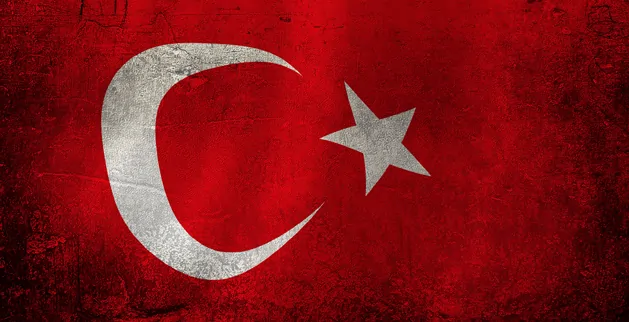
April 18, 2007, Necati Aydin and Uğur Yuksel, two of the first Turkish Christian converts from Islam, along with Tilmann Geske, a German Christian living in Turkey, were tied up, tortured with butcher knives and murdered in their own office at a Christian publishing house in Malatya, Turkey.
“Oh, you guys should shoot a documentary,” Fikret Bocek, a Turkish pastor, told Steve Husmann as they stood up from their dinner by the Aegean.
The suggestion moved two Texans to spend last summer creating Malatya, a documentary on the first martyrs of the modern Turkish church. The film premieres across the globe this April 18, the two year anniversary of the martyrdom.
Husmann, 24, the film’s producer, ventured to Turkey for the first time in January, 2008, to explore business opportunities. It was his second Christmas break after graduating from UT and taking a position as a middle-school teacher in Austin. His break as a filmmaker was the last opportunity he expected to come out of the trip. Nolan Dean, 22, who wrote and directed Malatya, was in his third year as a UT film student when he met Husmann in their Austin house church in the fall of 2007. Bonding quickly, even before Husmann’s January trip, the two hashed a simple plan to at least be in Turkey together the following summer.
The “when” and the “where” were easy. The “what” was a mystery to them both at the time. Though they knew of the story of the martyrs, their own ability to retell it needed a nudge into existence. It was Bocek’s after-dinner suggestion in January that provided the nudge. They put their first letter asking for support in the mail April 18, 2008. Thanks to friends, family and the remaining chunk of the funds fronted by Husmann, within a month they had enough to start. By mid-June, they were in Turkey.
Husmann went a week ahead of Dean to establish contact with their sources, a task that came easier than he’d been told it would. Turkey is a country of about 72 million people, and 99.8 percent of them are Muslim. Though religious freedom is established by law, the country harbors an open hostility toward Christians. This is born largely out of a strong Turkish nationalism, where the saying goes, “To be a Turk is to be a Muslim,” and a history of conflict with what’s seen as the “Christian” West.
“We heard so much about the Turkish culture and how people probably wouldn’t trust us,” Husmann says. “But people were just opening their doors to us.”
The two had their first interview the second day after Dean touched ground. They caught a plane and met Susanne Geske at her home in Malatya, where she’s chosen to stay and raise her children after her husband’s murder. She remembers the first journalist to interview her for a Turkish news outlet soon after the murders. She was still in shock and didn’t know what to say at first. “And then it came to my mind,” she told the filmmakers. “These words, what Jesus said, ‘Forgive them because they don’t know what they’re doing.’” Her message, to a culture that sees forgiveness as a sign of weakness, is the same today.
During their first of 21 interviews that summer, and first ever as a team, their vision for the film began to take shape. “Going in, we knew what interview content we wanted, but we didn’t know what exactly the film would be,” Husmann says. He even recalls feeling dejected at times, as though the entire project was misguided. “I remember sitting outside our apartment, a month in, and I was asking myself, ‘Why are we doing this? Who’s gonna want this?’”
After two months, 15 overnight bus rides, nearly a dozen flights and 6,000 miles across Turkey, Malatya was heading forward, but its makers still weren’t exactly sure where. “We never determined clearly our purpose until we came back,” Husmann says.
Husmann and Dean went to make a film about the men who died. Through their interviews, they began learning of the larger picture of persecution in Turkey, a story developing even more through the ongoing trial of the April 18, 2007 murders. As they began pursuing the story more from that angle, their interviews kept turning them back to a message Bocek preached to their church in Austin the past summer. It was the first time they’d ever heard of the Turkish church.
“As the vision of the film continued to grow into what it is now, our original vision became overshadowed by what God was doing,” Dean says. “It began to become narrowly focused on the men themselves, and their lives and their deaths. It went from being a film about persecution, to what obedience looks like in the midst of it.”
To Necati Aydin and his widow, Şemse, the cost of following Christ actually included befriending, teaching and loving men they both knew weren’t genuinely interested in their Lord. From soon after meeting them, Şemse says, she and her husband shared a deep conviction that the men who would go on to kill him had a different agenda.
“Just like Judas Iscariot,” she remembers her husband telling her, “we have to endure them and give them a chance to have salvation.”
To those left behind, the cost “is a bitter cup and we drink from it every day,” Şemse says. “But when we look at the Lord and say, ‘May your will be done,’ and we find comfort in the presence of Christ, this bitter cup becomes bearable.”
The testimony of the martyrs to Dean and Husmann is summed up in Jesus’ words when He says, “He who does not take up his cross is not worthy of me.”
“The film shows, in a sense, what true Christianity is,” Dean says. “To put it plainly, what following Jesus looks like.”
Watch the trailer and learn more about the film at MalatyaFilm.org.




















